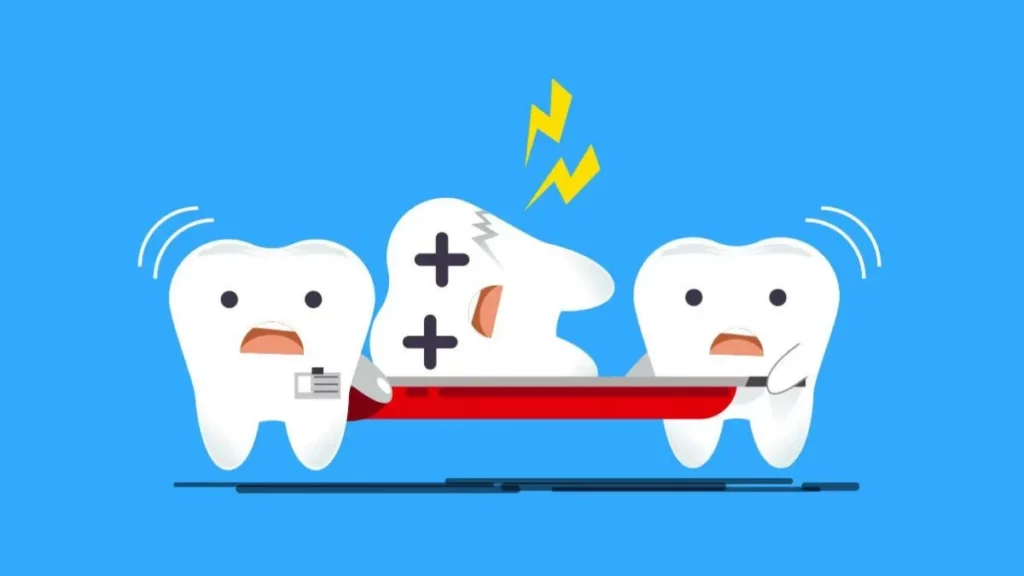
Finding a reliable dentist in an emergency can be a daunting task. If you’re in need of immediate dental care, look no further than our San Antonio dentist emergency services. Our skilled team is equipped to handle any dental crisis, providing swift and professional care to alleviate your pain and address your dental needs. Whether it’s a sudden toothache, a broken tooth, or any other urgent dental issue, our San Antonio location ensure that you get the prompt attention you deserve, right when you need it the most.
The Importance of Emergency Dental Services
Dental emergencies can strike at any time, often without warning. From severe toothaches and knocked-out teeth to broken crowns and abscesses, these situations can cause significant pain and discomfort. They not only disrupt your daily routine but also pose risks to your overall health if left untreated. This is where the importance of having access to reliable emergency dental services comes into play.
Emergency dental care is crucial for several reasons:
- Pain Relief: Dental emergencies are often accompanied by intense pain. Prompt treatment can provide immediate relief, preventing the pain from escalating and affecting your quality of life.
- Preventing Further Damage: Timely intervention can prevent minor dental issues from becoming major problems. For instance, a chipped tooth can be quickly repaired to avoid infection or further breakage.
- Preserving Your Smile: Emergency dental care can save your teeth and maintain your smile. Quick action can mean the difference between losing a tooth and saving it.
- Overall Health: Dental health is closely linked to overall health. Infections in the mouth can spread to other parts of the body, leading to serious complications. Emergency dental care helps prevent such risks.
What Constitutes a Dental Emergency?
Understanding what qualifies as a dental emergency is crucial for seeking appropriate care. Here are some common dental emergencies that require immediate attention:
- Severe Toothache: Intense and persistent tooth pain can be a sign of an underlying issue such as an infection or decay. Over-the-counter pain relievers may offer temporary relief, but professional evaluation is necessary.
- Knocked-Out Tooth: If a tooth gets knocked out due to trauma or accident, immediate action is needed. Keep the tooth moist and try to place it back in its socket if possible. Seek emergency dental care within an hour for the best chance of saving the tooth.
- Broken or Chipped Tooth: A broken or chipped tooth can expose nerves and lead to severe pain. It can also affect the appearance of your smile. Emergency dental treatment can restore the tooth and prevent further damage.
- Abscess: An abscess is a painful infection at the root of a tooth or between the gum and a tooth. It can cause swelling, fever, and a bad taste in the mouth. Abscesses are serious and require prompt treatment to prevent the infection from spreading.
- Lost Filling or Crown: Losing a filling or crown can leave the affected tooth vulnerable to damage and infection. Emergency dental care can replace the filling or crown and protect the tooth.
- Broken Braces or Wires: For individuals with orthodontic appliances, broken braces or wires can cause pain and hinder treatment progress. Emergency dental care can repair the appliances and prevent injury.
What to Expect During an Emergency Dental Visit
When you visit our San Antonio dentist for an emergency, here’s what you can typically expect:
- Immediate Assessment: Upon arrival, you’ll receive a prompt assessment to determine the severity of your condition. This initial evaluation helps prioritize your care and identify the most pressing issues.
- Pain Management: One of the first steps in emergency dental care is managing your pain. This may involve administering local anesthesia or providing pain relief medications to ensure your comfort.
- Diagnosis: Our dentist will conduct a thorough examination, which may include X-rays, to diagnose the problem accurately. This step is crucial for developing an effective treatment plan.
- Treatment: Based on the diagnosis, our dentist will provide the necessary treatment. This could range from filling a cavity, performing a root canal, repairing a broken tooth, or treating an infection. The goal is to address the immediate issue and prevent further complications.
- Follow-Up Care: After the emergency treatment, you may need follow-up appointments to ensure proper healing and to complete any additional treatments. Our dentist will provide you with instructions for at-home care and schedule any necessary follow-ups.
Preventing Dental Emergencies
While it’s impossible to predict and prevent all dental emergencies, there are steps you can take to reduce the risk:
- Maintain Good Oral Hygiene: Brush and floss regularly to keep your teeth and gums healthy. Regular dental check-ups can help identify and address potential issues before they become emergencies.
- Wear Protective Gear: If you participate in contact sports or activities that pose a risk to your teeth, wear a mouthguard to protect against injuries.
- Avoid Hard Foods: Avoid chewing on hard objects like ice, popcorn kernels, and hard candies, which can cause teeth to crack or chip.
- Be Mindful of Habits: Avoid using your teeth as tools to open packages or bite into non-food items, as this can cause damage.
- Address Dental Issues Promptly: Don’t ignore dental problems, even if they seem minor. Small issues can escalate into emergencies if left untreated.
San Antonio Dental Emergency Services are Available!
Dental emergencies can be stressful and painful, but having access to a reliable dentist in the San Antonio area can make all the difference. Our emergency services are designed to provide immediate, professional care when you need it most. With a focus on quick response, pain relief, and comprehensive treatment, we ensure that you receive the best possible care to address your dental emergencies. Remember, maintaining good oral hygiene and addressing dental issues promptly can help prevent many emergencies, but when the unexpected happens, we’re here to help. Don’t hesitate to reach out to our office for any dental emergency – your health and smile are our top priorities.
Dr. Gary P. Skrobanek’s experienced and friendly team at GPS Dental offers affordable dental care for all ages in San Antonio, TX area. Our Brooks City Base dentist office is conveniently located and offers early morning appointment times Monday through Friday to meet your needs. At GPS Dental, we promote dental health awareness to our patients and provide most dental services, from family and general dentistry to dental implants, sleep apnea, TMJ / TMD Treatment, cosmetic dentistry and much more. We accept most dental insurance plans and offer affordable financial solutions for any budget. Call us at 210-633-3477 to make an appointment.









